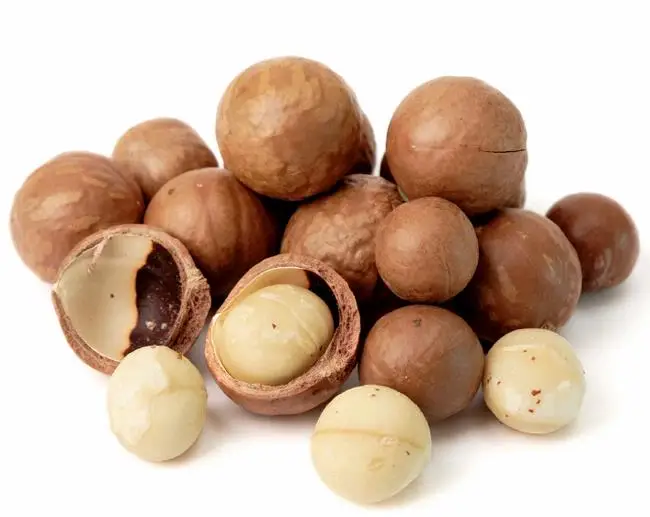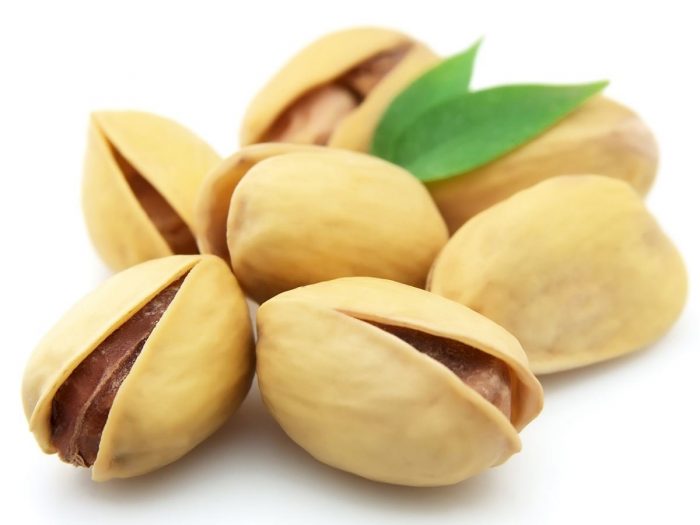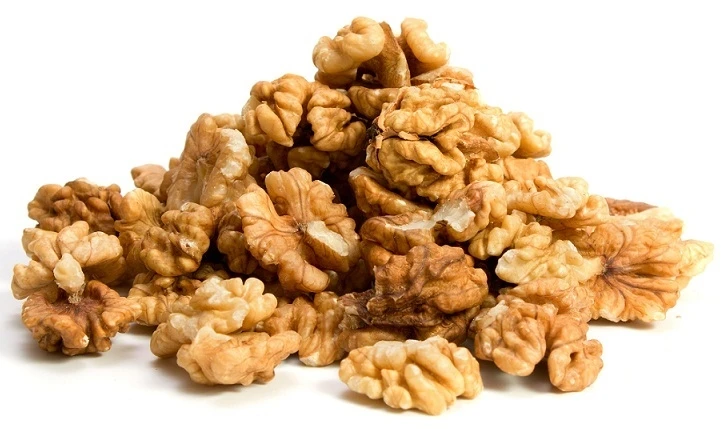All
nuts have different nutrition credentials and will offer various health
benefits - find out which nut is rich in calcium, which will offer a
protein boost and how much fat is in each type with our nutritionist's
guide...

Packed with protein, fibre and essential fats, nuts are one of this season's best buys. A golf ball-sized portion (about 30g) of unsalted nuts makes a vitality-boosting snack and, unlike most other options, contributes a mix of valuable vitamins and minerals. All nuts have different nutrition credentials and will offer various health benefits - find your perfect match with our guide...
Almonds
 If
you avoid dairy, calcium-rich almonds are a good choice to ensure
you're getting enough of this bone-building mineral. Almonds are also
high in vitamin E, a nutrient which helps to improve the condition and
appearance of your skin. For some extra heart help, swap flaked almonds
for the whole nut - with the skin intact - because the almond's skin is
full of heart-protecting compounds called flavonoids.
If
you avoid dairy, calcium-rich almonds are a good choice to ensure
you're getting enough of this bone-building mineral. Almonds are also
high in vitamin E, a nutrient which helps to improve the condition and
appearance of your skin. For some extra heart help, swap flaked almonds
for the whole nut - with the skin intact - because the almond's skin is
full of heart-protecting compounds called flavonoids.
Brazil nuts
 Ideal
for those with low thyroid function, Brazils are a good source of the
mineral selenium, which we need to produce the active thyroid hormone.
Selenium also supports immunity and helps wounds to heal. You only need
three or four Brazil nuts a day to get all the selenium you require.
Ideal
for those with low thyroid function, Brazils are a good source of the
mineral selenium, which we need to produce the active thyroid hormone.
Selenium also supports immunity and helps wounds to heal. You only need
three or four Brazil nuts a day to get all the selenium you require.
Cashews
 Because
they contribute a good level of protein and are a useful source of
minerals like iron and zinc, cashews make an excellent choice if you're
following a vegetarian diet. They're also rich in the mineral magnesium,
which is thought to improve recall and delay, age-related memory loss.
Add a handful to a vegetarian stir-fry or use as a nut butter on
crackers or bread.
Because
they contribute a good level of protein and are a useful source of
minerals like iron and zinc, cashews make an excellent choice if you're
following a vegetarian diet. They're also rich in the mineral magnesium,
which is thought to improve recall and delay, age-related memory loss.
Add a handful to a vegetarian stir-fry or use as a nut butter on
crackers or bread.
Chestnuts
 By
far the nut with the lowest fat and calories, chestnuts are rich in
starchy carbs and fibre, and in their raw form are a good source of
vitamin C. They're lower in protein than other nuts but make a useful
contribution of B vitamins including B6. Ground chestnut flour can be
used as a gluten-free flour for cakes and bakes, or buy fresh and roast
for a tasty snack.
By
far the nut with the lowest fat and calories, chestnuts are rich in
starchy carbs and fibre, and in their raw form are a good source of
vitamin C. They're lower in protein than other nuts but make a useful
contribution of B vitamins including B6. Ground chestnut flour can be
used as a gluten-free flour for cakes and bakes, or buy fresh and roast
for a tasty snack.
Hazelnuts
 Opt
for hazelnuts if you're concerned about high levels of homocysteine, an
amino acid which has been associated with heart problems as well as
conditions like Parkinsons. Hazelnuts are a good source of folate, which
plays a key role in keeping homocysteine within normal levels.
Opt
for hazelnuts if you're concerned about high levels of homocysteine, an
amino acid which has been associated with heart problems as well as
conditions like Parkinsons. Hazelnuts are a good source of folate, which
plays a key role in keeping homocysteine within normal levels.Macadamias
 With
one of the highest fat contents, macadamias are often used to add
flavour and texture to dishes and work well in both savoury and sweet
recipes. Although high in fat, they do supply good levels of the healthy
mono-unsaturated variety. They're a rich source of fibre and make a
useful contribution of minerals including magnesium, calcium and
potassium. Buy in small batches and store carefully to avoid rancidity.
With
one of the highest fat contents, macadamias are often used to add
flavour and texture to dishes and work well in both savoury and sweet
recipes. Although high in fat, they do supply good levels of the healthy
mono-unsaturated variety. They're a rich source of fibre and make a
useful contribution of minerals including magnesium, calcium and
potassium. Buy in small batches and store carefully to avoid rancidity.Pecans
Pistachios
 Being
especially rich in vitamin B6, which is important for keeping hormones
balanced and healthy, pistachios are a good option for those with
problem periods. They're the only nut to contain reasonable levels of
lutein and zeaxanthin, two antioxidants that play an important role in
protecting the eyes. Pistachios also contain potassium and fibre - in
fact a 30g serving has more than three times that supplied by the
equivalent weight of plums.
Being
especially rich in vitamin B6, which is important for keeping hormones
balanced and healthy, pistachios are a good option for those with
problem periods. They're the only nut to contain reasonable levels of
lutein and zeaxanthin, two antioxidants that play an important role in
protecting the eyes. Pistachios also contain potassium and fibre - in
fact a 30g serving has more than three times that supplied by the
equivalent weight of plums.Walnuts

Their superior antioxidant content means walnuts are useful in the fight against cancer. They're also a good source of mono-unsaturated, heart-friendly fats, and studies show they help to lower the bad form of cholesterol (LDL). Finally, they're rich in omega-3, so they're a great alternative if you don't eat oily fish.
Worried about the fat content?
Nuts are high in fat, but much of it is the heart-healthy variety. The amounts of saturated fat, the type of fat we should avoid, varies between nuts and has been flagged below. Aim to eat those in the amber and green bands most of the time and enjoy those in red category occasionally.Red (high saturated fat content)
 Brazil nuts
Brazil nutsMacadamias
Cashews
Amber (medium saturated fat content)
 Walnuts
WalnutsPecans
Pistachios
Green (low saturated fat content)

Hazelnuts
Almonds
Chestnuts
Sources:


No comments:
Post a Comment